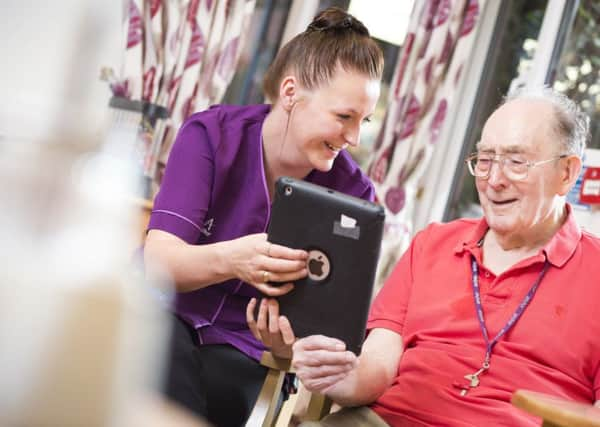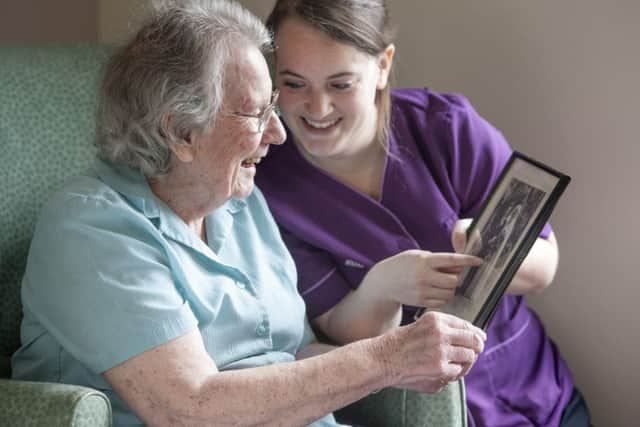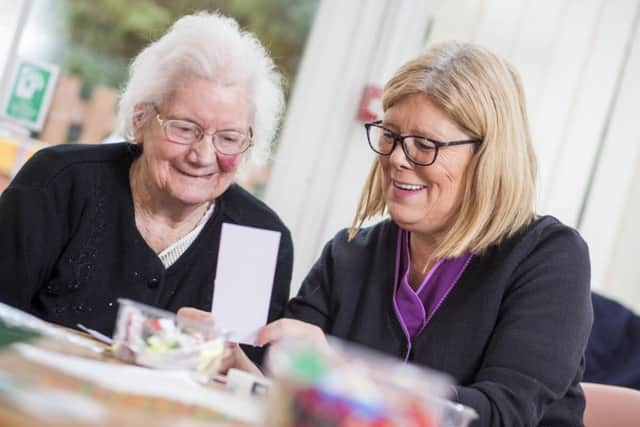How new technology can transform social care treatment and staff workload - Professor Martin Green


There is a fine balance between intrusive technology which may be appropriate for an acute setting, but not in somebody’s home. Care providers need to strike this balance whilst embracing the 21st century.
Advertisement
Hide AdAdvertisement
Hide AdCare England is the largest representative body for independent providers of adult social care with members drawn from providers of services for older people and learning disabilities – both of which are investing in tech.


It is, however, necessary to analyse why we need technology and always bear in mind that it has to benefit the recipient of care as the end goal.
Advertisement
Hide AdAdvertisement
Hide AdTechnology is not an end in itself, rather it is an enabler that will ensure that people receive the best possible care and are enabled to have as much choice, autonomy and control over their own lives as possible.


The adoption of digital technology is an increasingly pertinent issue in light of diminishing resources and increasing demand; the case for digital ways of working is becoming increasingly stronger. Improving the integration of technology in social care has the capacity to not only benefit care quality, but also the NHS and society as a whole as people will have better access to appropriate care and reduce reliance on acute and emergency services.
By way of example, Saint Cecilia’s Care Group has introduced a new video-enabled clinical response telemedicine service at its three homes in Scarborough, in partnership with provider Immedicare.
Through the service, staff at the homes can access a highly-skilled multidisciplinary clinical team 24 hours a day, seven days a week to help them get advice and guidance on a resident’s medical condition.
Advertisement
Hide AdAdvertisement
Hide AdIntroduced with the support of the Scarborough and Ryedale Clinical Commissioning Group (CCG) the service is designed to give residents immediate video access to medical advice so that the homes can decide on the best course of action.


In order for such initiatives to succeed it is however essential that due regard is given to the issues around data sharing agreements; innovation should not be thwarted by bureaucracy.
Social care has been ignored by successive governments. However, as recognised by the new administration, it cannot afford to be ignored any longer. There is no need for further consultation, review or green papers; the sector has been subjected to 13 of these in the last 17 years.
Care England has written to Number 10 offering to broker an inaugural Social Care Summit that would help facilitate positive discussions about how efforts can best be lent to finding a solution to the long-term sustainability of the sector. Part of this solution lies in the power of technology; both embracing it and investing in it.
Advertisement
Hide AdAdvertisement
Hide AdThe social care workforce, which is larger than that of the NHS, is our biggest and most valuable resource. It is also a huge employer in the local economies both in rural and urban areas. Technology needs to be harnessed to ensure that the workforce is in a position to have the gift of time.
It must free them up from paperwork in order that they can do what they do best, give kind and professional care. Most care workers will have a smart phone so they will be familiar with using some low-level technology.
Therefore it makes sense to utilise this skill and embrace tech at work. The sector is brimming with innovation, energy and solutions – all of which can been utilised by the incumbent government to take significant strides to solving the social care crisis.
By way of example, in a Warwickshire-based nursing home, by switching to digital care planning software end-of-shift documentation has been reduced by 1.5 hours per carer, per shift. This is a significant reduction, which over time will amount to a return on investment in both the quality and efficiency of care.
Advertisement
Hide AdAdvertisement
Hide AdHistorically, the adult social care sector has been subjected to short term and inadequate injections of cash to help fund struggling councils or to temporarily prop up the NHS during winter pressures, whilst not addressing the deep-rooted problems within the current system.
The incumbent Government finds itself in a position with a clear working majority which gives it the ability to formulate a comprehensive long-term funding solution to the adult social care crisis.
As the largest representative body for independent adult social care providers, Care England can help provide these solutions including digitilisation.
Professor Martin Green OBE is chief executive of Care England.